Resources
Get Matched to the Right Builder
FIND THE PERFECT CUSTOM HOME BUILDER WITH OUR FREE ASSESSMENT
Tired of feeling overwhelmed? Look no further. We'll match you to the right builder in the Houston area and save you months of valuable time and money you'd spend trying to find one on your own. Click below to get started!
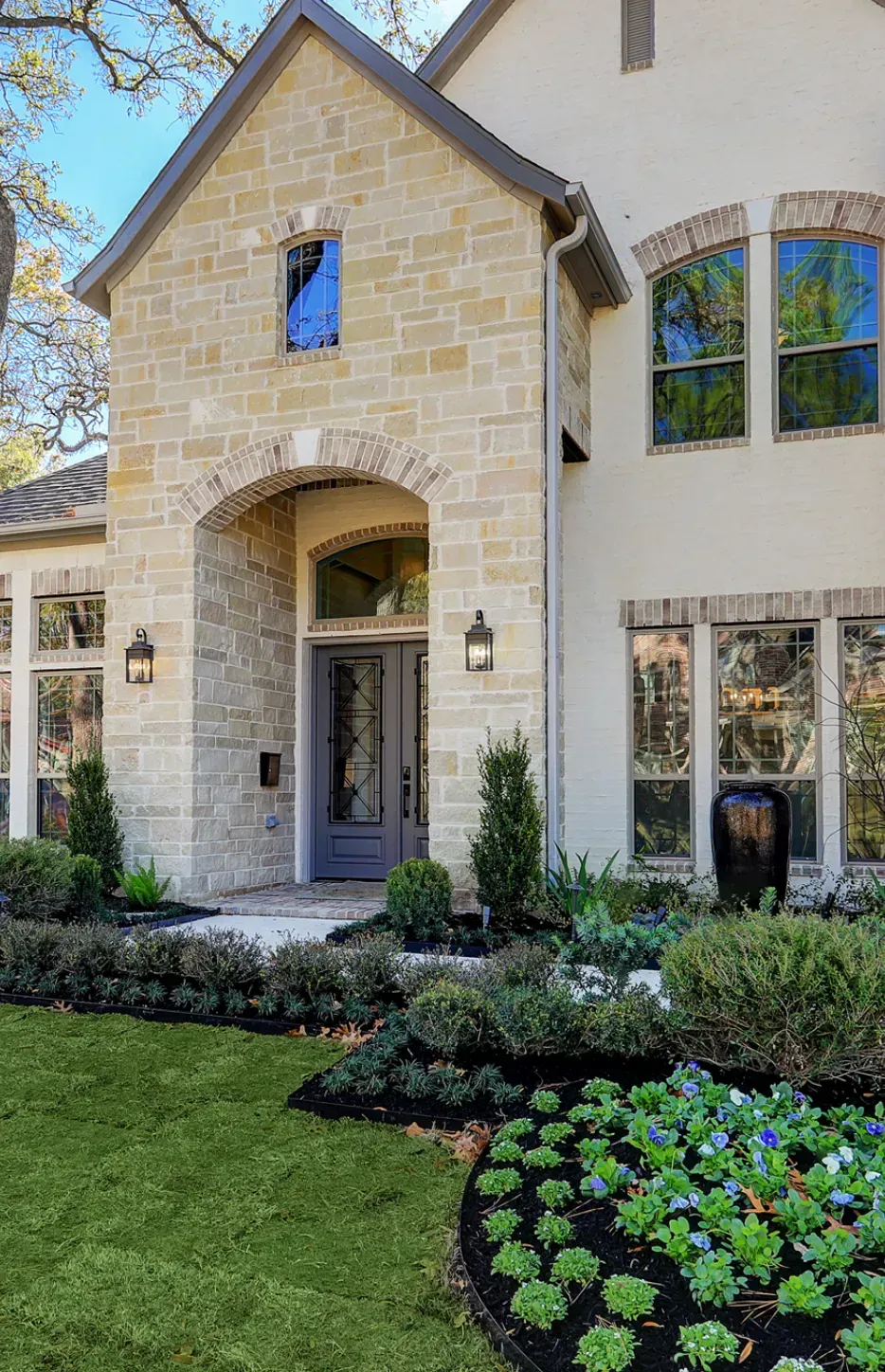
Download The Ultimate Custom Home Building Guide
A Step-by-step guide to building your custom dream home.
Download The Ultimate Custom Home Building Checklist
Finance
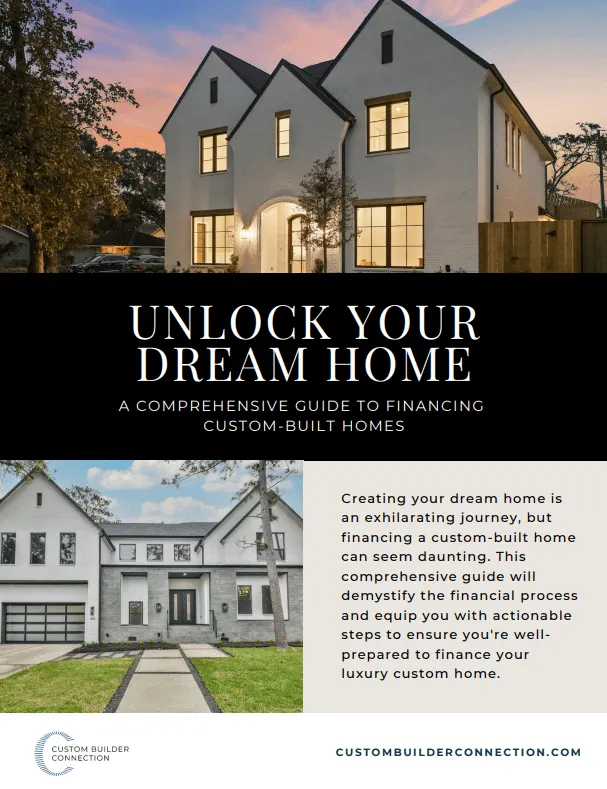
Finding Lot
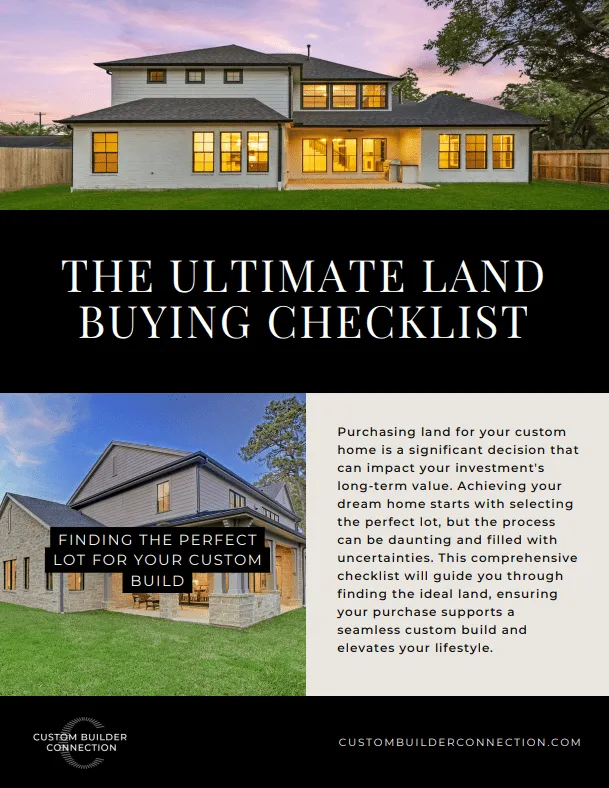
Best Builder
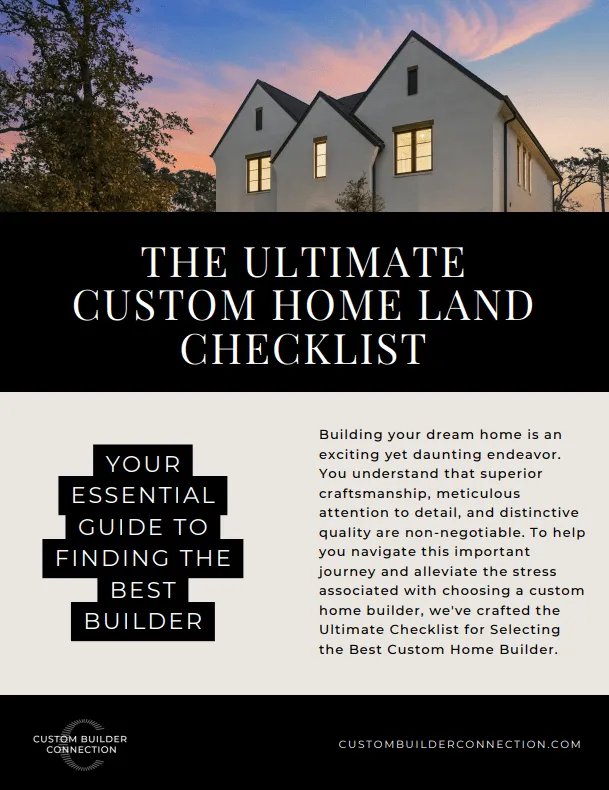
Explore Our Gallery of Custom Homes
Browse our finished projects that display the craftsmanship of the builders we’ve matched with homeowners – turning dreams into reality.
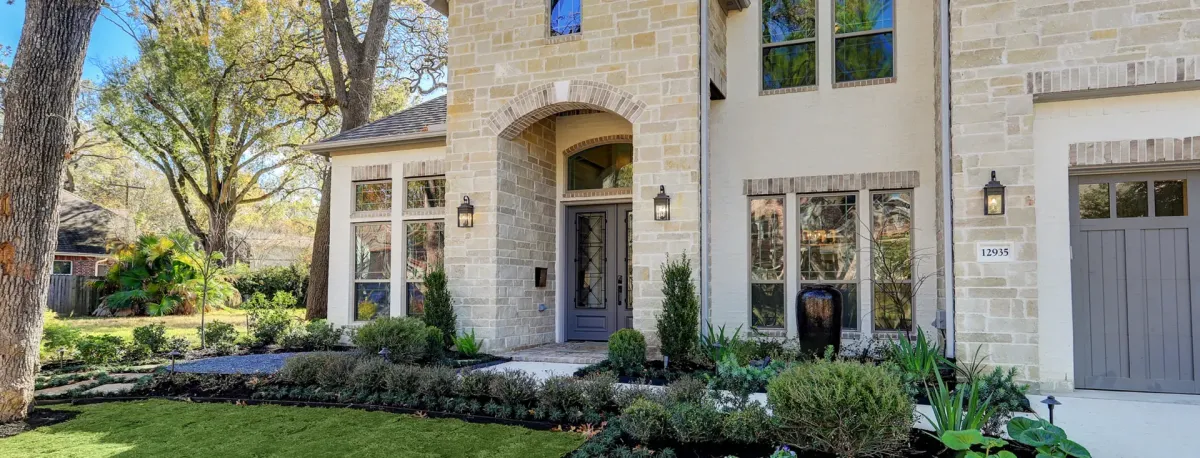
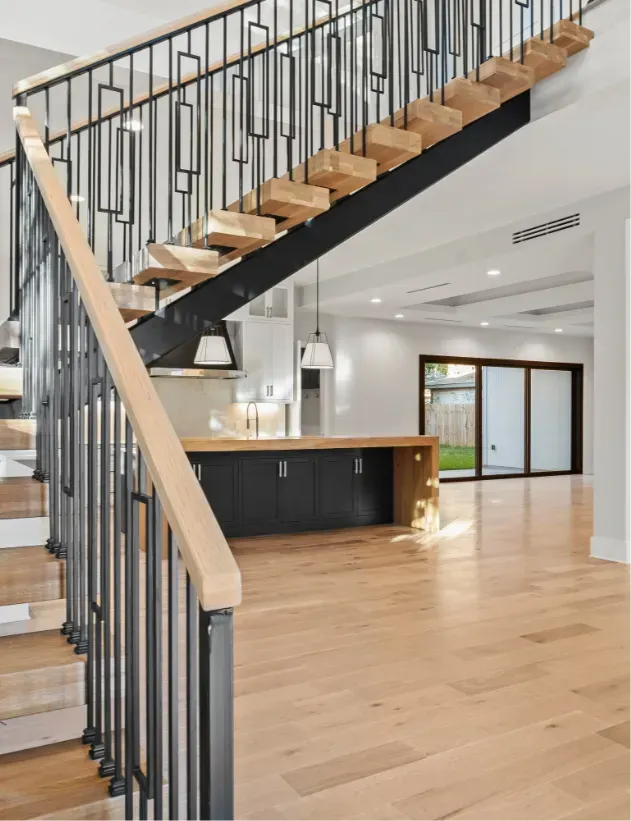

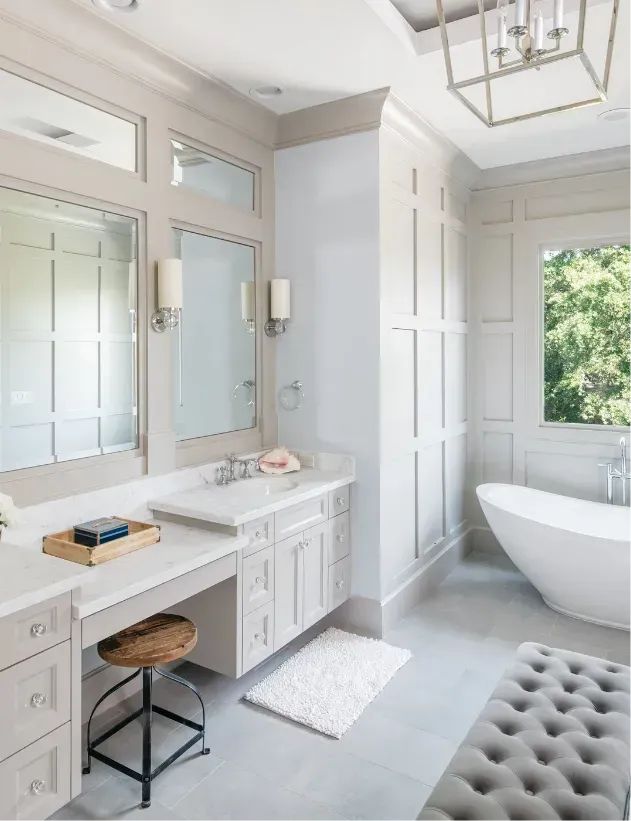
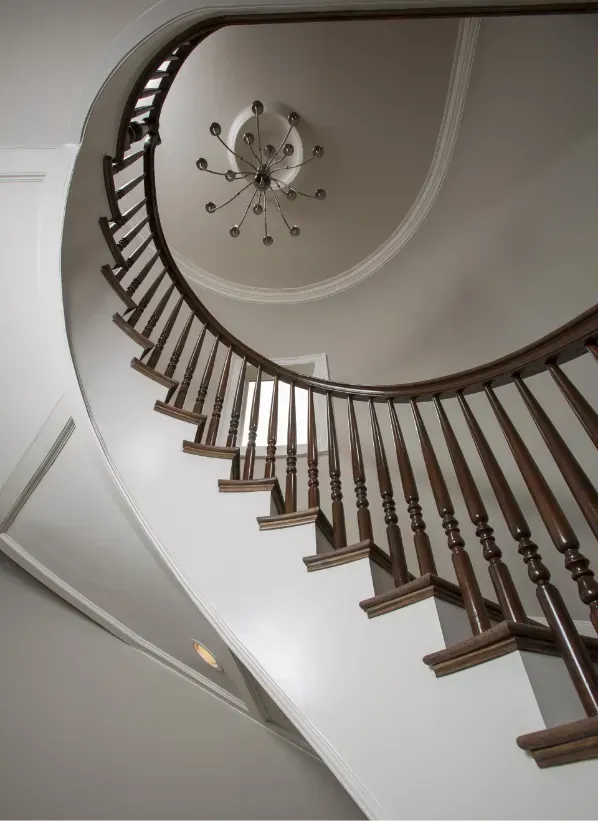
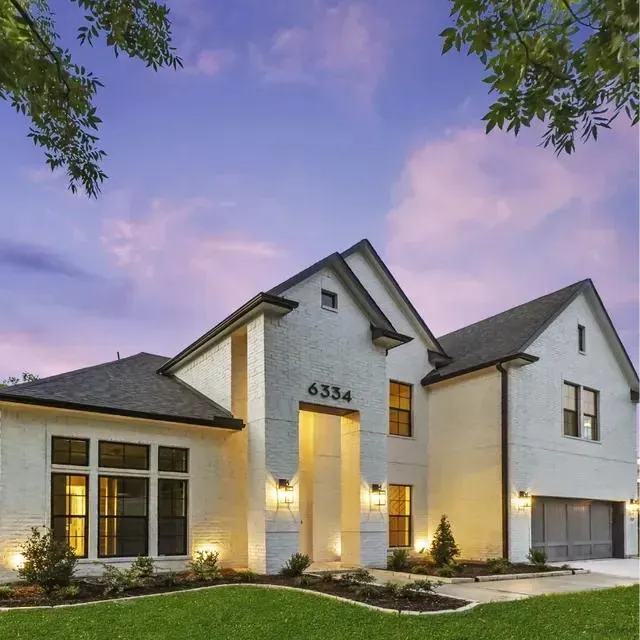
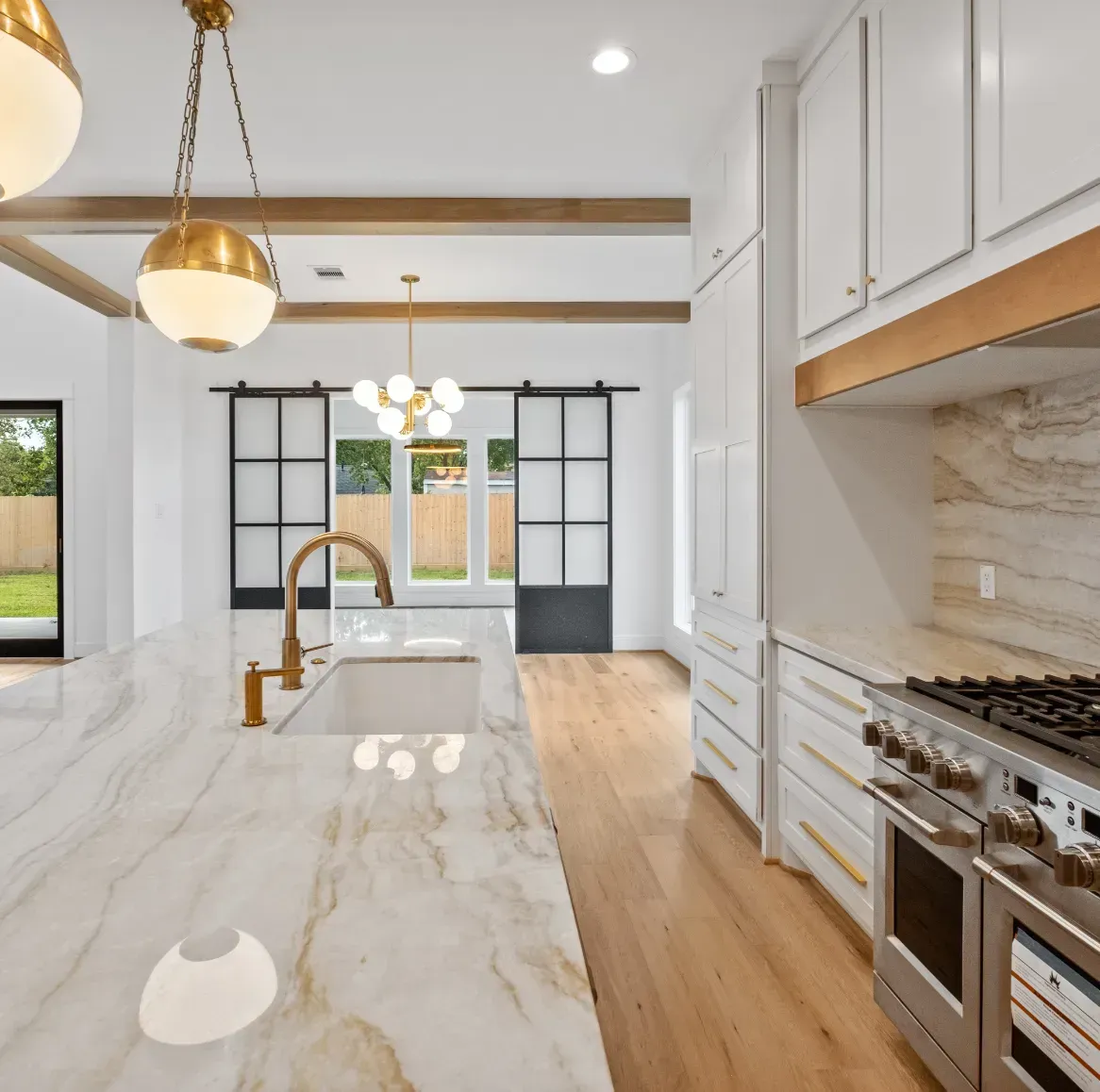
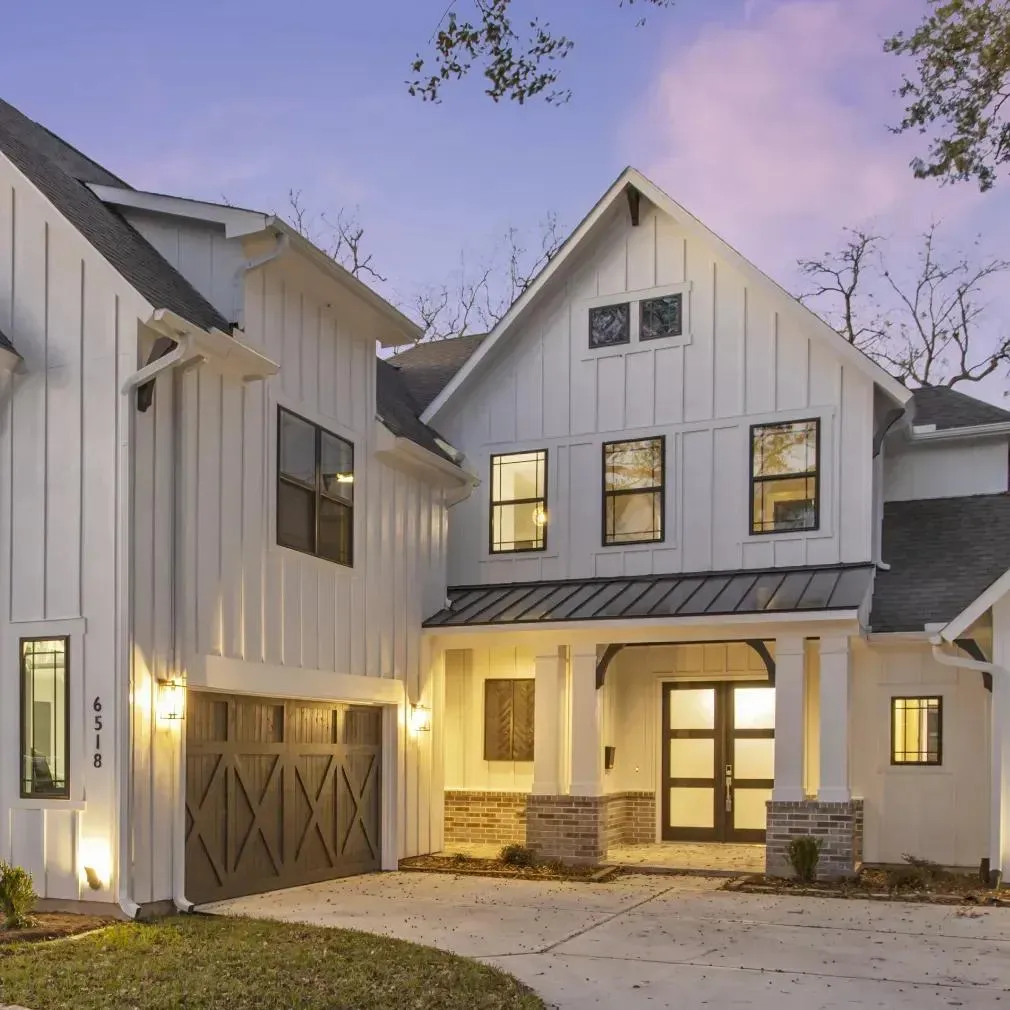
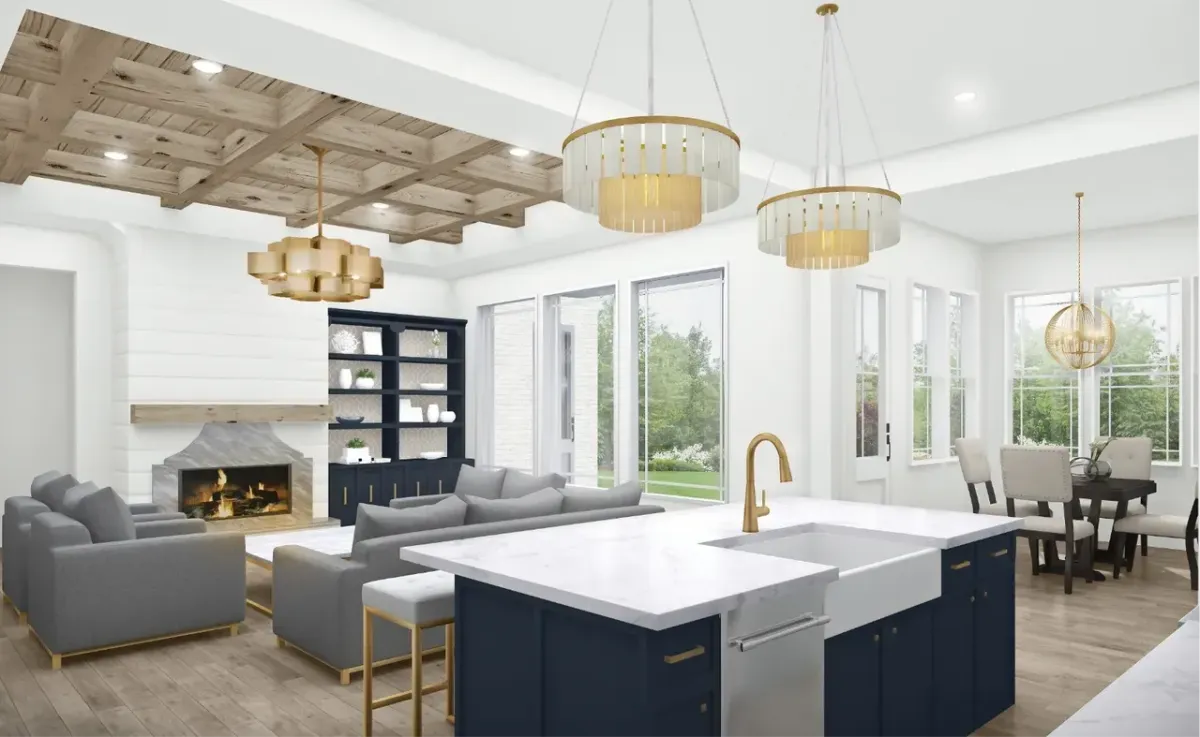
BLOG
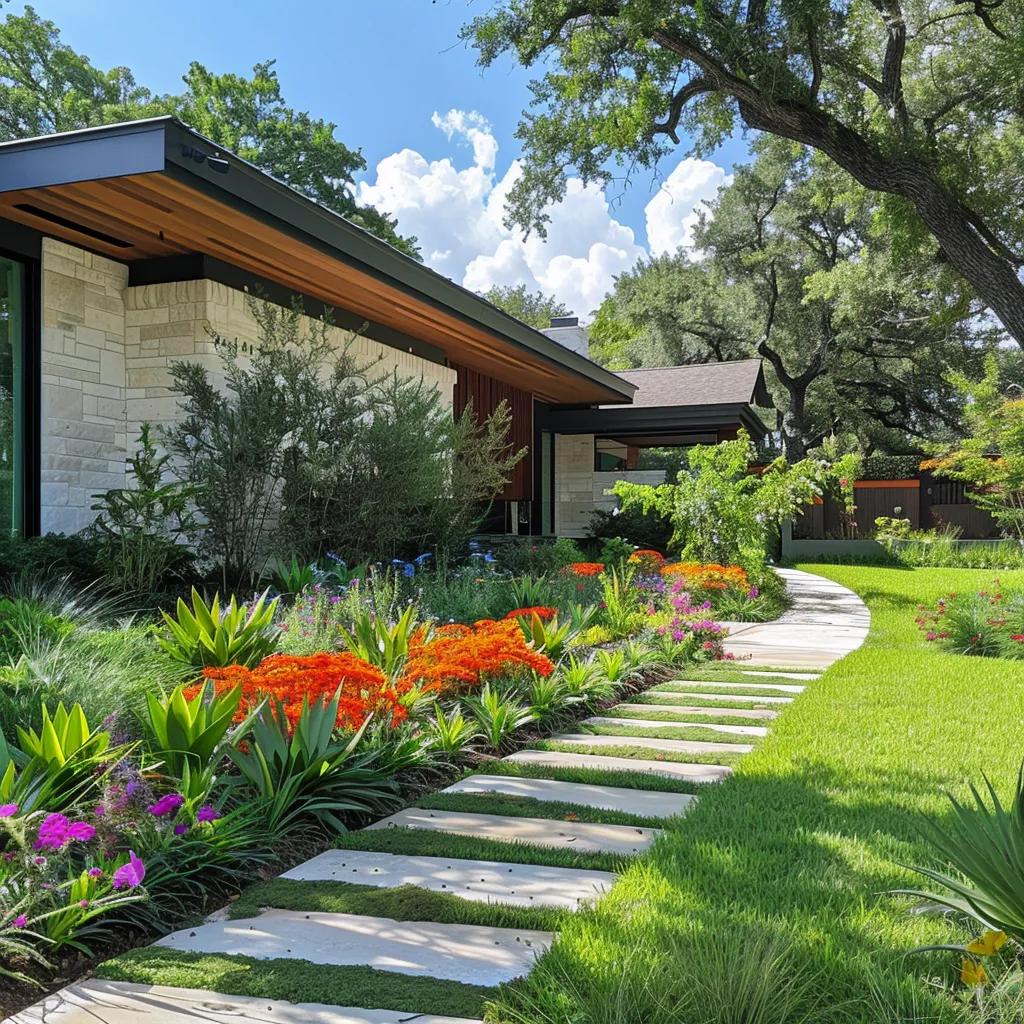
Discover Creative Landscaping Ideas for New Homes
Landscaping for new homes can elevate curb appeal, boost property value, and create outdoor experiences that reflect your lifestyle, all while addressing Houston’s unique climate and soil challenges. Many homeowners feel overwhelmed by choices around plants, hardscaping materials, and budgeting, yet a strategic plan can streamline decisions, phase installations, and connect you with vetted professionals. This guide covers why landscaping matters, how to plan your landscape, front- and back-yard ideas, sustainable trends, cost considerations, plant and material selection, and expert connections, all designed to help Houston families achieve a “wow” factor with confidence.
Key Takeaways
Landscaping significantly impacts curb appeal, property value, and outdoor enjoyment.
Planning early allows for better integration of grading, planting, and outdoor features.
Native plants and sustainable practices reduce maintenance and conserve resources.
Hardscaping defines outdoor spaces and adds long-lasting functionality.
Privacy landscaping and outdoor living areas enhance comfort and usability.
Partnering with vetted professionals ensures high-quality results and a stress-free process.
Why Does Landscaping Matter for New Homes in Houston?

Landscaping defines first impressions, increases resale value, and provides functional outdoor spaces by combining plant selection, hardscaping, and sustainable design tailored to Houston’s environment.
How Does Landscaping Enhance Curb Appeal and Home Value?
Landscaping enhances curb appeal by framing architectural features with color and texture, and a well-planned yard can increase home value by up to 12 percent through improved aesthetics and functionality.
Home Value Enhancement through Landscaping
Landscaping can significantly boost a home's value by enhancing its curb appeal and functionality. A well-designed landscape can increase home value, making it a worthwhile investment for homeowners.
What Are the Personal and Environmental Benefits of Quality Landscaping?
Quality landscaping improves mental well-being by providing green views, lowers energy costs through shade and windbreaks, and boosts biodiversity by using native plants that support pollinators.
How to Plan Your New Home Landscape for Maximum Impact

A well-planned landscape starts with a clear vision, a thorough site assessment, and a strategy that balances cost, timing, and visual appeal. By making informed choices early, you can ensure that your outdoor spaces complement your home’s architecture, thrive in your local climate, and grow more beautiful over time.
Understand Your Property and Soil Conditions
Before planting, evaluate the natural characteristics of your lot. In areas with clay-rich soil, common in many parts of Texas, water drains slowly, leading to pooling and compacted roots. Test your soil’s pH, drainage, and nutrient levels, then improve conditions by incorporating compost or sand to enhance structure and aeration. Address grading and slope issues early to prevent erosion and ensure proper water flow.
Set a Realistic Landscaping Budget
Your landscaping budget should account for both immediate needs and long-term goals. Prioritize foundational work, grading, drainage systems, irrigation, and core plantings, before investing in decorative features like lighting, custom stonework, or specialty gardens. A phased approach allows you to add enhancements over time without compromising the essential infrastructure that keeps your landscape healthy.
Use a Phased Landscaping Strategy
Breaking the project into stages can help manage costs, align with planting seasons, and keep the design adaptable. Begin with site preparation, soil amendments, and front yard basics for instant curb appeal. Add major hardscaping elements such as patios or walkways next, followed by backyard planting and focal features like water or fire elements. Reserve final decorative touches—seasonal flowers, accent lighting, or garden art—for the last stage.
Work with Vetted Landscaping Professionals
Professional guidance can save time, reduce costly mistakes, and ensure your design is both functional and visually appealing. Review portfolios to confirm a landscaper’s style matches your vision, verify licensing and insurance, and speak with past clients about their experiences. Custom Builder Connection can match you with pre-screened landscape designers and installers who understand your local conditions and can manage the project from concept to completion.
What Are the Top Front Yard Landscaping Ideas to Wow Your Neighbors?

Front yard designs combine foundation plantings, inviting entryways, and low-maintenance strategies to make a bold statement without constant upkeep.
Which Foundation Plantings Create Stunning First Impressions?
Foundation plantings use a layered mix of evergreens (e.g., Ixora), shrubs (e.g., Dwarf Yaupon Holly), and perennials (e.g., Lantana) to soften home exteriors and provide seasonal interest.
How Can You Design Welcoming Entryways with Hardscaping Elements?
A defined pathway of permeable pavers directs guests to your door, while low walls, natural stones, and accent lighting create a structured yet inviting approach.
What Are Low-Maintenance Front Yard Ideas for Houston Homes?
Low-maintenance yards rely on native, drought-tolerant plants—Texas Sage, Turk’s Cap—and mulch beds or groundcovers like Asiatic jasmine to suppress weeds and minimize watering.
How Do Modern Front Yard Designs Use Clean Lines and Geometric Shapes?
Modern designs feature crisp edges between turf and planting beds, boxwood hedges clipped into geometric forms, and symmetrical layouts that mirror your home’s architectural lines.
How Can You Create Functional and Beautiful Backyard Outdoor Living Spaces?

Backyard living areas extend your home outdoors, combining patios, shade structures, and focal features for year-round enjoyment.
What Are the Best Features for Designing Outdoor Living Areas?
Patios, decks, and pergolas define seating and dining zones. Durable materials like composite decking or stamped concrete ensure longevity with minimal upkeep.
How Do Water Features and Fire Pits Add Wow Factor to Backyards?
Water features introduce soothing sights and sounds that mask urban noise, while fire pits extend evening use and become natural gathering spots. Combining both elements creates an engaging outdoor atmosphere.
What Are Effective Privacy Landscaping Solutions for New Homes?
Layered plantings of bamboo, evergreen hedges, and decorative fencing provide sound buffering and visual seclusion. Mixed living walls and lattice panels enhance height and green coverage.
How Can You Incorporate Edible and Pollinator-Friendly Gardens?
Raised beds for herbs, vegetables, and pollinator-friendly natives like Black-Eyed Susan offer fresh produce, attract beneficial insects, and seamlessly blend function with beauty.
What Are the Latest Sustainable and Smart Landscaping Trends for Houston Homes?

Sustainable, technology-driven landscaping reduces resource use while enhancing convenience and aesthetic impact.
Which Native Plants Thrive in Houston’s Climate for Sustainable Landscaping?
Native selections such as Texas Sage, Gulf Muhly Grass, and Yaupon Holly thrive in heat and humidity, support wildlife, and require minimal supplemental water once established.
How Does Xeriscaping and Water-Wise Design Conserve Resources?
Xeriscaping uses drought-tolerant plant palettes, mulching, and rain gardens to reduce irrigation needs, manage stormwater, and promote soil health.
Sustainable Landscaping Practices
Implementing sustainable landscaping practices, such as using native plants and water-wise designs, is crucial for conserving resources and promoting environmental health. These practices not only reduce water consumption but also support local ecosystems.
What Smart Irrigation Systems and Landscape Lighting Options Are Available?
Smart irrigation controllers adjust watering based on weather forecasts and soil moisture sensors, cutting water waste by up to 50 percent. LED landscape lighting with timers and motion sensors enhances safety and energy efficiency.
How Can Eco-Friendly Materials and Practices Enhance Your Landscape?
Permeable pavers improve drainage, recycled mulch reduces waste, and organic soil amendments boost fertility without chemicals, creating resilient landscapes that minimize environmental impact.
How to Budget for Landscaping a New Home

Understanding how different landscaping elements impact costs can help you make informed decisions and prioritize where to invest first. Whether you’re adding simple plantings or designing a complete outdoor living area, planning ahead ensures your budget is used effectively.
Typical Budget Considerations
Landscaping costs vary widely based on the size of your property, design complexity, and choice of materials. Core work such as grading, soil preparation, irrigation installation, and foundational plantings will make up your initial investment. More elaborate features—like patios, water features, or custom lighting—add to the total but also increase long-term enjoyment and curb appeal.
How Landscaping Elements Affect Overall Costs
Hardscaping—patios, walkways, retaining walls, and other permanent structures—often accounts for the largest share of the budget because of the materials and labor involved. Softscaping, which includes trees, shrubs, turf, and garden beds, typically makes up the next largest portion. Lighting, irrigation upgrades, and decorative accessories add value and function but usually represent a smaller percentage of the total.
Cost-Smart Strategies for Phasing Your Project
A phased approach lets you spread out expenses while still making visible progress. Start with essential infrastructure—grading, drainage, and irrigation—to create a strong foundation. Next, add high-impact front yard elements for immediate curb appeal. Larger features like backyard patios, fire pits, or specialty plantings can be added over time. To save further, consider bulk-ordering native plants, using mass plantings instead of one-off specimens, and selecting durable, low-maintenance materials that last for years.
How Do You Choose the Right Plants and Hardscaping Materials for Houston Homes?

Selecting materials and species adapted to local conditions reduces maintenance and ensures cohesive design across softscape and hardscape elements.
What Are the Best Drought-Tolerant and Low-Maintenance Plants for New Homes?
Drought-tolerant picks like Agave, Lantana, and Muhly Grass demand minimal supplemental watering. Groundcovers such as Frogfruit or Asian Jasmine cover bare spots without constant trimming.
Which Hardscaping Elements Elevate Your Landscape Design?
Features such as modular paver patios, natural stone pathways, and decorative gravel add texture and depth. Retaining walls of native limestone provide elevation changes and seating walls in one.
How Do You Integrate Plants and Hardscaping for a Cohesive Look?
Pair contrasting textures—smooth concrete pavers against feathery grass plumes—and align color palettes across stone, mulch, and foliage. Strategic grouping reinforces visual flow and unifies outdoor “rooms.”
Finding Vetted Landscaping Professionals in Houston
Partnering with the right landscaping experts ensures your project is completed efficiently, meets local requirements, and reflects your vision from start to finish. Skilled professionals can navigate Houston’s unique climate and soil conditions, handle permitting, and provide ongoing support to keep your outdoor space thriving.
How Custom Builder Connection Makes It Simple
Custom Builder Connection connects homeowners with pre-qualified landscaping professionals matched to their project scope, budget, and style. This eliminates the time and uncertainty of vetting credentials, ensuring you work with licensed, insured experts who have a proven track record in the Houston area.
What to Look for in a Landscaping Professional
When hiring, verify that your landscaper holds the necessary state licensing and insurance. Review portfolios to see examples of work similar to your project, ask for references from past clients, and confirm plant warranties or maintenance options for long-term success.
How Professional Guidance Ensures a Smooth Process
An experienced landscape designer or contractor can provide a clear master plan, realistic timelines, and phased budgets tailored to your goals. They also account for seasonal planting windows and local regulations, turning a complex project into a well-organized, stress-free experience.
Frequently Asked Questions
What are the most important elements to include in new home landscaping?
A balanced combination of hardscaping, native plants, functional outdoor living areas, and efficient irrigation systems ensures both beauty and practicality.
How can I keep my landscaping low-maintenance?
Choose drought-tolerant plants, use mulch or groundcover to reduce weeds, and consider automated irrigation to simplify watering.
When should I start planning my landscaping?
It’s best to start during the home’s construction phase so grading, drainage, and planting can be integrated into the build timeline.
What are the benefits of using native plants?
Native plants thrive in your local climate, require less water, and support pollinators and other beneficial wildlife.
How do I choose the right landscaping professional?
Look for licensed, insured experts with experience in your climate, review their portfolios, and seek references from past clients.
Conclusion
Creating a beautiful, functional yard for a new home begins with thoughtful planning, climate-appropriate plant choices, and durable hardscaping that will stand the test of time. By combining curb appeal enhancements, sustainable practices, and smart use of space, you can design an outdoor environment that fits your lifestyle and boosts property value.
With Custom Builder Connection, you gain access to vetted landscaping professionals who understand your vision and Houston’s unique conditions. From concept to completion, their expertise ensures your project is seamless, cohesive, and tailored to your needs—turning your yard into a standout feature of your home for years to come.
Contact Us Today To Learn More
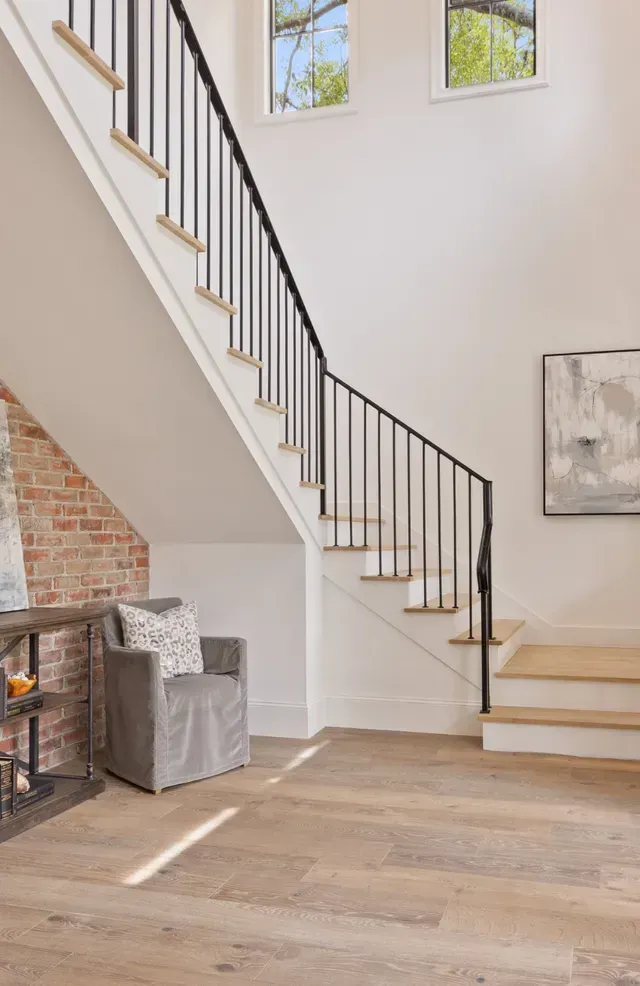
Phone: +1 713-304-5330
Address: 8588 Katy Fwy #450, Houston, TX 77024, United States


